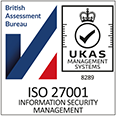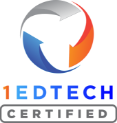Wendy Leadbeater, Associate Professor in Biomedical Science and Neil Cocklin, Senior Learning Technologist from Aston Medical School, Aston University on ‘The vision, ethos & constructivist magic behind personal tutoring at Aston Medical School.’ This recording is from our 2023 MiniBash community event which was hosted in Birmingham, England. Videos are for educational personnel only and require a live educational email to watch. You can read a small snippet of the video transcript below.
–START TRANSCRIPT–
Thank you everybody for this opportunity to talk to you about personal tutoring at Aston Medical School.
I have actually recently moved to Birmingham University, but it’s great coming back and working with Neil and meeting up with some of my old Aston colleagues to talk about what we did over the last five years at Aston.
So, Aston Medical School started in 2018 with regards to the first cohort of students. So, I joined in 2018 and set up the personal tutoring and student support process, and quickly started working with Paul and Neil with setting up PebblePad to support the personal tutoring.
So, I was formally the head of student support for the medical school and my colleague here Neil, who like Paul said, is going to hopefully go live and look at the workbooks that we created for the medics so that they can create their own individualised portfolio.
I’m going to focus on personal tutoring today, but we have lots of other workbooks that we’ve created, which I’m sure both of us are happy to talk about today during the breaks.
So, my brief introduction is really about the vision that we had for personal tutoring, and the vision really was about creating a very proactive student support system where we recruited personal tutors to support their duties offering academic support. So this is getting them feedback on their assessments and their progress as they migrate through the programme.
Personal professional development which we could embed quite nicely into PebbelPad, and that was looking at their work, life balance, their career development. So again, integrating with professional services.
And we really wanted to develop a community. So it was a new medical school, it was a really good opportunity to integrate with all the different services that we had at Aston, and we really wanted the students to feel part of the university and part of the medical school.
And we wanted to sort of develop the sense of belonging, so develop that community sense of belonging and using personal tutoring to help with that.
We also really wanted to get the staff to feel part of the community because personal tutoring can feel quite isolating sometimes. You know, meeting one to one with your tutees. So, we did get staff to work together, particularly if they were from different areas or had different experiences and they had that whole building that sense of community, which then ultimately feeds into the students.
And then, of course, the pastoral care. So if there’s any sort of student difficulties, they’d always have a personal tutor that they could access and work with.
So the overview. I’m not going to talk for very long, I’m going to pass onto Neil, but the overview of what we’re going to talk about here is wanting to structure the personal tutor meetings. We wanted to log interactions, we wanted the students to upload evidence, and use this as a portfolio that they could then graduate with, collecting all the evidence of their placements, their reflections, and their reflective diaries that we created.
–END TRANSCRIPT–







